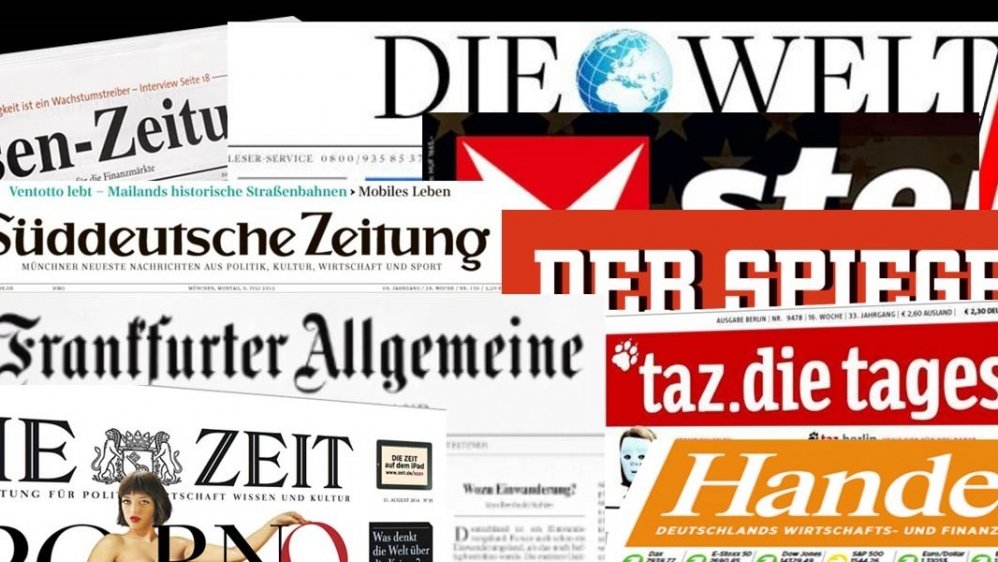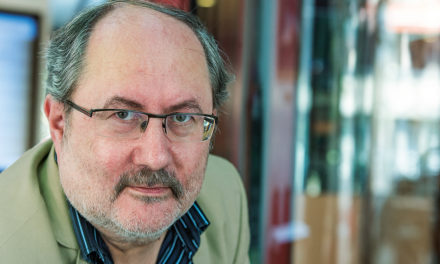State-financed German broadcasting must concentrate on the "essence of its public mission", i.e. it must provide balanced information. Is that how you inform me? Or does it rather excel in attitude formation? Written by Gábor T. Túri.
Is television re-educational in Germany?
Don't be!
- demands the German Christian Democratic Party (CDU) - that is, "TV should not educate!" With this slogan, according to the Swiss Neue Zürcher Zeitung, the CDU wants to further intensify its criticism of the ARD and ZDF television channels, in which the media of the Greens and the left are more and more openly trying to take over the political influence of viewers in Germany.
It seems that an awakening can be detected in the long-paralyzed German opposition, because lately, against the spectacular political demagoguery of the Greens and the SPD, the politicians of the German Christian Democrats are starting to speak out.
Several CDU politicians are already openly criticizing public broadcasters.
Recently, Nathanael Liminski demanded an explanation for the continuous "distortions" and ideological bias that can be seen there. Liminski is the Minister for Federal and European Affairs and Media Affairs of the state of North Rhine-Westphalia (NRW). With his positions, as well as the fact that he is also the head of the state chancellery - and therefore considered the right-hand man of NRW Prime Minister Hendrik Wüst -, he increasingly opposes the "activist journalists" working at ARD, who, according to him, are not subject to any internal control.
Politicians from the states of Saxony-Anhalt and Baden-Württemberg, as well as Carsten Linnemann, the general secretary of the CDU, who has long missed reforms and changes in the field of media, expressed similarly sharp criticism.
The latest point of discussion is an article in the "Monitor" magazine of the Westdeutscher Rundfunk (WDR, i.e. the West German TV station). Using old quotes, the platform accused the CDU general secretary of leading the Christian Democratic Party on what it believed to be a "correcter path" on Instagram.
In parallel, the already mentioned NRW media minister (Liminski) in the Rheinische Post
"it also reports on three such unacceptable transgressions by three different newsrooms that occurred in just two weeks."
Earlier, the youth program Funk, which is run by Südwestrundfunk (SWR), accused Friedrich Merz (CDU) and Markus Söder (CSU) of "becoming right-wing together with AfD politicians Björn Höcke and Alice Weidel". At the same time, at WDR TV, whose director is the very influential Tom Buhrow, a statement made by Merz was cut in such a way that the content favored the Greens.
According to Liminski, those who
"in such an aggressive manner, they disparage most of the leading members of the political spectrum and society, and massively inhibit the political commitment of convinced supporters to a widely supported and strong public service broadcasting".
He then adds to all of this that, at the same time, such "transgressions are not known to other parties of the democratic spectrum".
As a result of the increasing pressure, it seems that the concerned leaders of the Media started to back down, because
the director general of SWR and the president of ARD (Kai Gniffke) have already apologized for the polemic with Funk, saying that the Instagram post, which has since been deleted, did not meet "our journalistic standards". In the same way, WDR regretfully admitted that Merz's abbreviated statement could have created a false impression.
When Liminski demands a "public explanation" for the mistakes, he is simultaneously targeting the WDR's "Monitor" and what he sees as a general ideological imbalance from the CDU's point of view. However, the Düsseldorf minister is not alone in his opinion.
The media policy spokesperson and parliamentary director of the CDU (Markus Kurze), who is also active in the state parliament of Saxony-Anhalt, told the Neue Zürcher Zeitung: the CDU has a long-standing impression that state broadcasting is more concerned with political preaching than information.
"Many citizens rightly tell us," Kurze said, "that they don't want educational television, but balanced coverage."
Similarly, the leader of the parliamentary faction in Baden-Württemberg (Manuel Hagel) expressed a similar opinion in the newspaper "Cicero". He sees that, especially at ARD, "the conservative side, i.e. the presentation of the reforms proposed by the CDU, suffers from a huge lack" and that in the public service broadcasting, with regard to the other (non-governing) parties as well, there is an "unbalanced representation".
An apology cannot be enough in this regard, because "the manipulation of statements by omission, as happened recently in the case of Friedrich Merz, must have labor law consequences".
According to Hagel, the program "needs a liberal-conservative voice that can form a counterweight."
The general secretary of the Christian Democratic Party, Carsten Linnemann, did not wish to comment on the new accusations at the request of the Swiss Neue Zürcher Zeitung (NZZ). However, the current general secretary has already been the driving force behind the due reforms in this field, which state that state-financed broadcasting must focus on the "essence of its public mission". In other words, you should report in a more balanced way.
Linnemann writes in his book "Die ticken doch nicht richtig" ("They are not right yet"), published in 2022:
"If people are worried about uncontrolled immigration, it's not the job of politics or the media to stop people from worrying."
Of course, we can stop here for a moment, because it is not easy to forget how the German press reacted during the 2015 refugee crisis - which first appeared in Budapest at Kelet-pályaudvar. Even then, the now-complaining CDU is still at the helm, and under its leadership, the media's images and articles achieved the desired effect: the effect dictated by the "Willkommenskultur" announced by Merkel.
"The viewers were made to believe," writes one German reader, "that we are mainly visited by families who need protection." This was reinforced by the manipulated image of the dead boy lying on the beach, which put European governments everywhere on trial. In the coverage, the fact that the largest group of refugees was made up of tens of thousands of young men - and still is today...
However, if we recall how unabashedly they scolded the defenders of the Hungarian border at that time, and what manipulated pictures were published in the European media, then we should be quite surprised at the CDU's current flood of complaints.
Or are they just starting to wake up? When the trouble is already on their fingernails, and they feel the scandalous behavior on their own skin, which in the last decade, the media, believed (and declared!) to be objective and impartial, produces in Germany with a population of 80 million?
Perhaps, from our Hungarian point of view, this wouldn't even be a problem, and we could just shrug our shoulders and pass by, saying that it's German internal affairs, let's not get involved.
Except!
In our globalized world, the media has also become globalized, so what the most economically developed state of our European continent and its media announce, is adopted almost without criticism by the media of the nations gathered under the flag of the European Union.
The German media is indeed able to create an atmosphere in the whole of Europe!
Namely, with mood packages that are not formed in the consumers as a result of the description of reality (in the readers who echo all this in sheepish fashion), but which serve the – questionable – goals of the politicians. And this is no longer media, in the former and classic sense of the word, but a "funnel" through which they can fill the heads of credulous citizens with the most diverse - and most tempting - opinions.
However, there is another source of danger in unscrupulous manipulation: if there is a country – in our case, Hungary – that has not yet succumbed to media-driven politics, and at least some of its news portals publish opinions that differ from the mainstream, then the entire European Union, which as one man denounces German propaganda, views the recalcitrant country as an enemy.
And this is not a fiction, but a real problem that has escalated to the point where it is ideologically dividing Europe neatly;
and the guided citizens assist the press propaganda as "nodding John" in the western half of Europe.
(TTG)
Source: Bitte kein «Erziehungsfernsehen»! Die CDU verschärft ihre Kritik an ARD und ZDF
Featured Image: Deutsch-ungarische Beziehungen, Meinungsartikel












